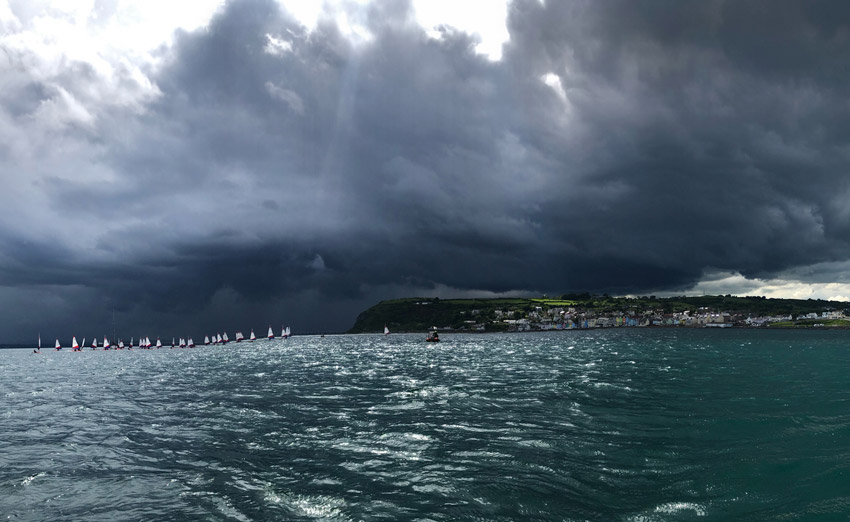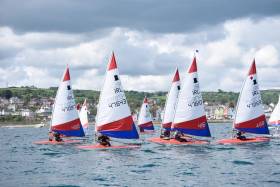Displaying items by tag: Topper Traveller
Report From Topper Traveller 3 At County Antrim Yacht Club
County Antrim Yacht Club in Whitehead hosted the ITCA (IRL) Topper Traveller 3 on Sunday 9 June, kindly sponsored by Ryobi.
A total of 53 Toppers entered the event, with representation from 20 yacht clubs across Ireland. Many competitors enjoyed a day of race training on Saturday to practice for the event.
Race officer Sheela Lewis performed well under variable conditions and all four scheduled races were completed.
Competitors faced lighter winds which built to a stormy final race, with safety teams working hard to ensure all sailors returned safely to shore.
In the 5.3 fleet, Adam Irvin from the National Yacht Club took top honours with only 5 points. Closely following were Darragh Collins from the Royal Cork Yacht Club and Ethan McCormac from Cushendall Sailing and Boating Club in second and third place respectively.
 Dramatic skies as the Toppers return to shore | Photo: Laura Robinson
Dramatic skies as the Toppers return to shore | Photo: Laura Robinson
Ryan Collins of the Royal Cork had an impressive win in the 4.2 fleet with 3 firsts. Daniel Palmer of Donaghadee Sailing Club took second place followed by Ella Fitzgerald from Clontarf Yacht & Boat Club/NYC.
The Regatta fleet saw novice sailors perform well, hopefully whetting their appetite for more racing this summer. Callum Jackson and Patrick Rainey, both from Coleraine Yacht Club, took first and second place respectively, followed by Georgia Rafferty representing the home club.
Rear Commodore Francis Rock organised a team of over 60 volunteers from the club to ensure the visitors had a warm welcome and well supported sailing from launching through to recovery.
The host club expressed its thanks to Ryobi whose sponsorship made the event possible, to Laura Robinson who provided photography for the event, to ITCA (Ireland) and to Francis, Sheela and the full volunteer team.





























































